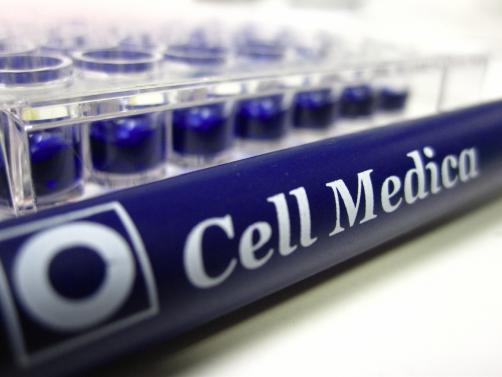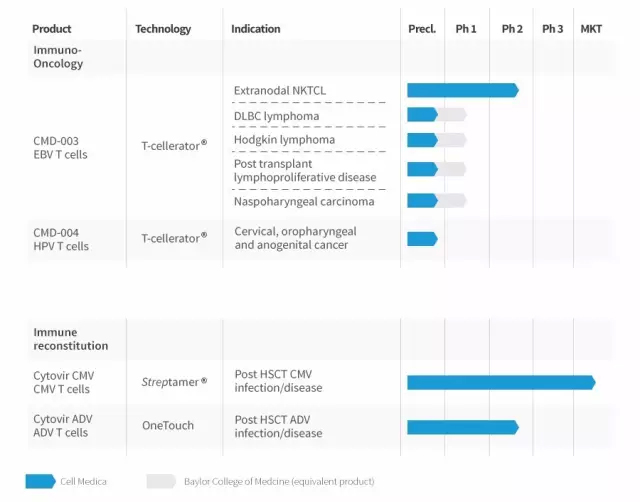Recently, Cell Medica, based in London, UK, announced the completion of a £60 million (about 510 million) Series C financing. Investors in this round of financing include investment funds managed by Invesco Perpetual and Woodford Investment Management and Touchtone Innovation. Cell Medica is a company dedicated to the development of cellular immunotherapy. The funds from this round of financing will be used to further develop the company's three original technology platforms to develop cellular immunotherapy. Cell Medica's flagship product, baltaleucel-T, is a T cell that is isolated from the patient and activated and proliferated in vitro. These T cells are targeted to target Epstein Barr Virus. Currently, baltaleucel-T is used in the clinical phase 2 trial to treat advanced lymphoma caused by Epstein Barr virus. Since baltaleucel-T is developed by the patient's own immune cells, it has few toxic side effects while targeting tumors. In February of this year, baltaleucel-T received a fast track certification from the US FDA. However, Cell Medica is not satisfied with the achievements. Since last year, the company has further expanded its technology platform by acquiring Delenex Therapeutics and entering into two strategic cooperation agreements. â–²Cell Medica's R&D line (Source: Cell Medica's official website) Cell Medica's partnership with Baylor College of Medicine in the United States will work to jointly develop CAR-T cell therapies based on Invariant Natural Killer T Cell (iNKT). Current CAR-T therapies are mostly based on T cells isolated from patients, because if allogeneic T cells isolated from healthy humans are used, these cells may be considered to be foreign to the patient when injected into the patient, thus It causes serious side effects called Graft Versus Host Disease (GvHD). While iNKT cells do not cause GvHD due to the expression of T cell receptors, allogeneic CAR-T therapy based on these cells may be used to treat multiple cancer patients and minimize GvHD. Cell Medica also entered into a partnership agreement with University College London to develop a T Cell Receptor (TCR) product for cancer treatment. TCR technology confers the ability of TCR-expressing immune cells to target tumors by targeting TCRs to tumor-specific intracellular or cell surface antigens. TCR technology at University College London in the UK can increase the expression of TCRs on the surface of T cells, thereby enhancing the efficiency of these cells in killing tumors. Abc Cylinder,Abc Fire Extinguisher Cylinder,Fire Cylinder Abc,Abc Gas Cylinder NINGBO TOMAN IMP. & EXP. CO., LTD , https://www.tdotmfiresolution.com


Cell therapy company Cell Medica treats lymphoma: 500 million investment
Prev Article
How to remedy peanut damage